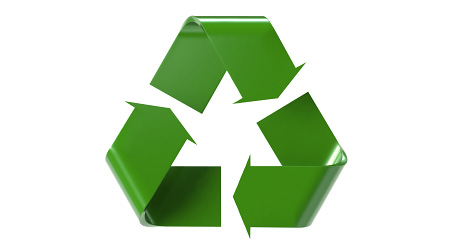Why Helping the Environment Isn't a Priority

Saving this shiny blue marble floating through space simply isn't a priority for most human beings. While it isn't fair to generalize or judge Third World countries struggling to build economies and provide for their populace, first world nations have little reason not to focus significant resources and attention on environmentally friendly policies. While most think government entities and industry leaders are responsible for reducing global warming, in reality it's an individual effort. Each and every one of us is responsible for what we buy and how we live which directly influences corporations and politicians.
Reduce
Reducing consumption is the number one way to have the greatest impact on energy usage. Many government agency reports have stated we will be unable to expand our way out of an energy crisis. The only way to prevent rolling blackouts and excessive utility costs is to focus on energy-efficient and renewable technologies like LED light bulbs, wind farms and electric vehicles. The problem for most consumers however is that reduction is often misinterpreted as sacrifice. The two greatest indicators of our society's gluttonous behavior is that the average consumer carries approximately $8,000 in credit card debt and 60% of the nation is considered overweight and 35% is obese. Needless to say, we aren't a society which is particularly interested in reducing consumption.
Reuse
Fortunately, reuse is in a better situation than reduce when being embraced by the public. There are many shows and web sites dedicated to repurposing furniture and other items to give new life to products which would normally have been tossed in a landfill. This however isn't the default action and will take a number of years before repairing becomes preferred over replacing. Reuse often goes hand-in-hand with learning new skills which has unfortunately fallen by the wayside in a technologically savvy and time constrained society. Few individuals embrace learning how to sew or becoming proficient with woodworking or electronics to facilitate repairs.
Recycle
Recycling is the most widely embraced and easily modified behavior because the only effort it requires from consumers is separating items into a few different boxes. Glass goes here and paper goes there which is easy to understand and even easier to do. It doesn't require learning a new skill or showing self-control, only to take what's already been purchased and dropping it into a specific container. Regardless of the motivation, recycling something is still better than nothing if it keeps product packaging out of a landfill. An interesting aspect however, is that if reducing were fully embraced then recycling would be less necessary.
Summary
While the overall tone may feel negative there is actually hope for the future as we move forward as a society. It's not a matter of if we make helping the environment a priority but only a matter of when. We've already made significant strides in conserving limited resources but it's only the beginning if we hope to avoid prognosticated nightmare scenarios which result from global warming and rising ocean levels. Much like voting in an election, it is important to understand that you play an integral part in society and the planet's ecosystem.
Elsewhere on StockMonkeys.com







